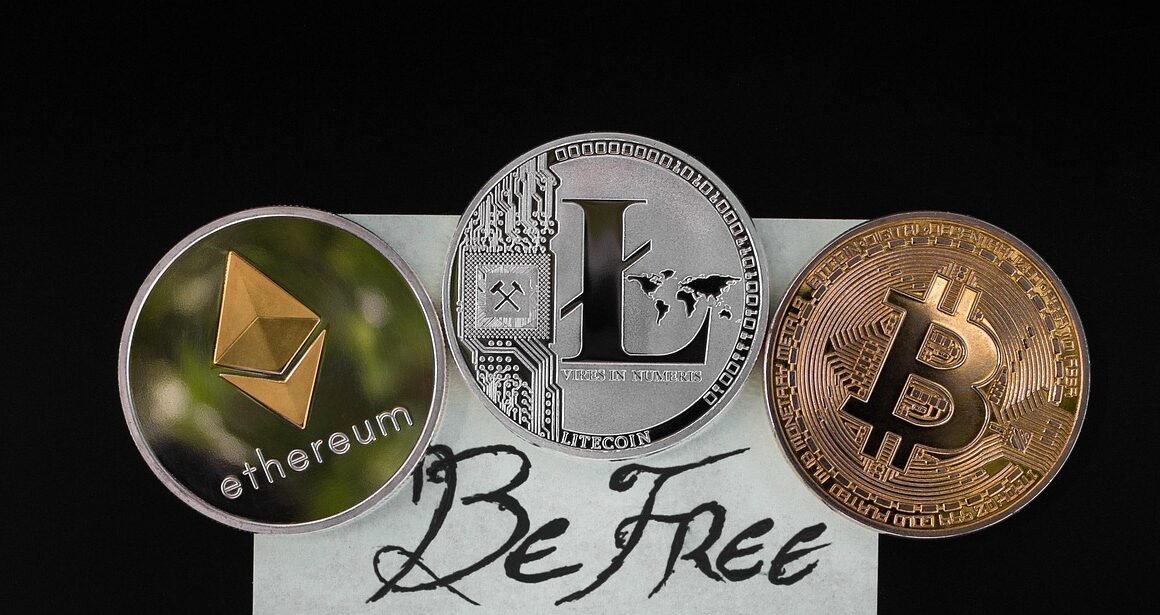Smart contracts: The digital agreements transforming the world are revolutionizing how we conduct business and interact online. These self-executing contracts, powered by blockchain technology, offer unprecedented levels of transparency, security, and efficiency. This comprehensive guide will delve into the intricacies of smart contracts, exploring their functionalities, applications, and potential impact on various industries.
What are Smart Contracts?
Defining Smart Contracts
A smart contract is a self-executing contract written in code and stored on a blockchain. It automatically enforces the terms of an agreement when predetermined conditions are met. Think of it as a digital vending machine: you put in the correct payment, and the machine automatically dispenses the product. There’s no need for a human intermediary.
Key Features of Smart Contracts
- Decentralization: Smart contracts operate on a distributed ledger, eliminating the need for a central authority.
- Automation: Execution is automatic once the conditions are met, reducing delays and human error.
- Transparency: All contract terms and transaction history are publicly available on the blockchain.
- Immutability: Once deployed, smart contracts cannot be altered, ensuring trust and reliability.
- Security: Blockchain technology provides a high level of security against tampering and fraud.
How Smart Contracts Work: An Example
Imagine a smart contract designed for a real estate transaction. The contract specifies that ownership of the property will transfer to the buyer once the agreed-upon payment is deposited into a designated escrow account on the blockchain. When the payment is made, the smart contract automatically executes the transfer of ownership, updating the property records on the blockchain. This eliminates the need for title companies and reduces the risk of fraud.
Benefits of Using Smart Contracts
Increased Efficiency and Reduced Costs
Smart contracts streamline processes by automating tasks and eliminating intermediaries, leading to significant cost savings and increased efficiency. For example, supply chain management can be drastically improved by automating payments upon verification of delivery, reducing paperwork and reconciliation efforts. A study by Juniper Research estimates that blockchain technology, including smart contracts, could save businesses $31 billion by 2024.
Enhanced Security and Transparency
The inherent security features of blockchain, such as cryptography and immutability, make smart contracts highly secure. Transparency is also improved, as all contract terms and transaction history are publicly auditable. This reduces the risk of disputes and enhances trust between parties.
Improved Trust and Accountability
Since smart contracts are self-executing and tamper-proof, they increase trust and accountability in transactions. Parties can be confident that the contract will be executed according to its terms, regardless of external influences. This is particularly valuable in situations where trust is limited or where enforcement mechanisms are weak.
Faster Transactions and Dispute Resolution
Smart contracts can execute transactions much faster than traditional methods, reducing delays and improving overall efficiency. In the event of a dispute, the terms of the smart contract provide a clear and objective basis for resolution, speeding up the process and reducing legal costs.
Practical Applications of Smart Contracts
Supply Chain Management
Smart contracts can track goods as they move through the supply chain, automating payments, verifying delivery, and ensuring product authenticity. This reduces fraud, improves efficiency, and enhances transparency. For example, a smart contract could automatically release payment to a supplier once a shipment is confirmed by an IoT sensor.
Healthcare
Smart contracts can securely store and manage patient data, automating insurance claims processing, and facilitating data sharing among healthcare providers. This improves efficiency, reduces administrative costs, and enhances patient privacy. For instance, a smart contract could automatically approve a prescription refill based on pre-defined criteria and patient consent.
Real Estate
Smart contracts can streamline real estate transactions, automating property transfers, managing escrow accounts, and simplifying mortgage processing. This reduces costs, speeds up transactions, and enhances transparency. Tokenized real estate allows for fractional ownership, making real estate investment more accessible. Imagine buying and selling shares in a property through a decentralized exchange, all managed by a smart contract.
Voting Systems
Smart contracts can create secure and transparent voting systems, preventing fraud and ensuring accurate vote counts. This can improve trust in democratic processes and increase voter participation. For example, Estonia is exploring using blockchain-based voting systems to enhance security and accessibility.
Insurance
Smart contracts can automate insurance claims processing, providing faster payouts and reducing administrative overhead. Parametric insurance uses smart contracts to trigger payouts based on predefined events, such as weather conditions, without the need for manual claims assessment. For example, a farmer could receive an automatic payout if rainfall falls below a certain threshold, protecting them from crop failure.
Challenges and Future of Smart Contracts
Security Vulnerabilities
Smart contracts are susceptible to code vulnerabilities, which can be exploited by attackers to steal funds or manipulate the contract’s logic. Rigorous auditing and testing are crucial to identify and mitigate these vulnerabilities. The DAO hack in 2016 highlighted the importance of secure coding practices and formal verification. Formal verification uses mathematical techniques to prove the correctness of smart contract code.
Scalability Issues
Blockchain networks often face scalability challenges, which can limit the transaction throughput of smart contracts. Layer-2 scaling solutions, such as payment channels and sidechains, are being developed to address these limitations. These solutions allow for faster and cheaper transactions outside of the main blockchain, while still benefiting from its security features.
Legal and Regulatory Uncertainty
The legal and regulatory landscape surrounding smart contracts is still evolving. Clarity is needed on issues such as contract enforceability, liability, and data privacy. Governments and regulatory bodies are actively exploring ways to regulate smart contracts without stifling innovation. The lack of clear legal frameworks is a major hurdle to wider adoption.
Interoperability
Different blockchain platforms use different smart contract languages and protocols, making it difficult for smart contracts to interact with each other. Interoperability solutions, such as cross-chain bridges and atomic swaps, are being developed to address this challenge. These solutions allow for the seamless transfer of assets and data between different blockchains.
The Future: More Widespread Adoption
Despite these challenges, the future of smart contracts is bright. As technology matures and the regulatory environment becomes clearer, smart contracts are poised to become a mainstream tool for automating business processes, enhancing trust, and driving innovation across various industries. We can expect to see more sophisticated smart contract applications emerge, leveraging advancements in areas such as artificial intelligence and the Internet of Things.
Conclusion
Smart contracts represent a fundamental shift in how agreements are made and enforced. By leveraging the power of blockchain technology, they offer significant advantages in terms of efficiency, security, and transparency. While challenges remain, the potential benefits of smart contracts are undeniable. As the technology continues to evolve, we can expect to see smart contracts playing an increasingly important role in shaping the future of commerce and governance. Explore different blockchain platforms and consider how smart contracts can streamline your specific use cases.



